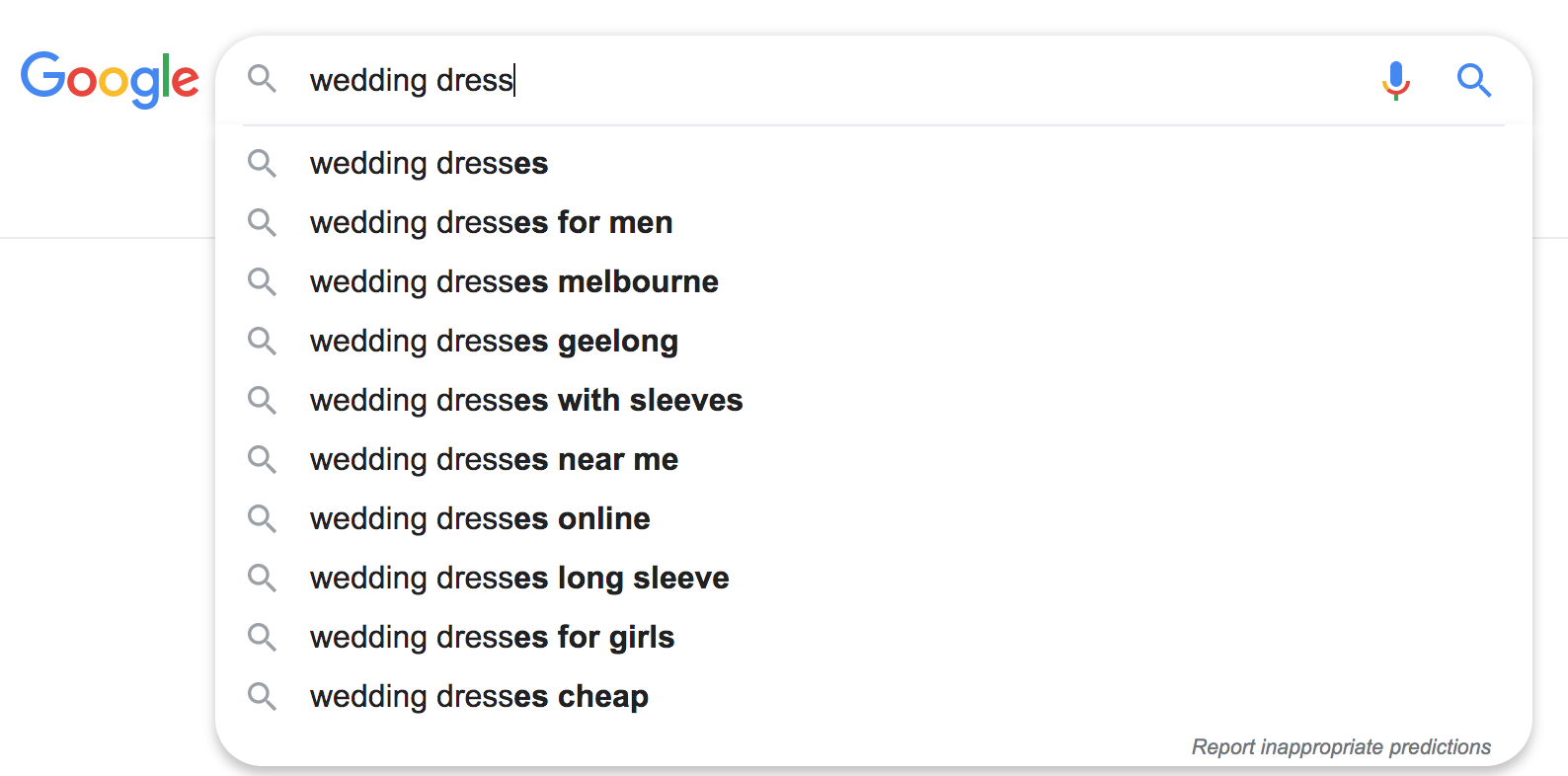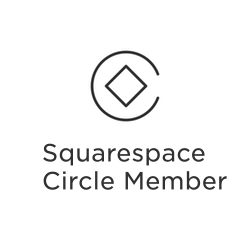When it comes to SEO I find people love chatting about ranking position but not so much the keywords in which they are ranking for.
I find this truly perplexing given that the two are mutually inclusive. Rankings are based on a keyword phrase and therefore any conversation about the position a webpage is ranking for in the search results should start with what phrase it is ranking for.
I was recently asked about the importance of keywords. The business owner shared with me that they didn't really didn't understand what keywords they should be focussing on at all. For a business that relies heavily on attracting new business via organic and paid search engine results, I found this is quite concerning.
Let's work though an example to see if we can simplify the importance of finding the right keywords for your business.
Lets use the example of a business selling wedding dresses. The business currently ranks in position 1 in the search results for the phrase 'bridal dress' and they think great - ranking #1.
Dig a little deeper.
Using SEMRush I discover the search volume of the term ‘bridal dress’ has a monthly search volume of around 2900 whereas the term 'wedding dress' has around 49,500 searches per month.
Let's talk about those numbers.
Research from MOZ suggests that 62% of desktop search clicks go to organic listing skipping the higher placed ad listings. For the #1 position result for ‘bridal dresses’ they’ve got 1798 searches potentially ready to click on their link.
If the position 1 result in the search gets 32.5% of that traffic as Research from Click Burst suggests, the listing in position #1 for ‘bridal dresses’ should receive clicks from 584 of those users searching. Sure, not a bad day out from one keyword.
But let's look at it if they’d optimised the ranking page for ‘Wedding Dresses’.
49,500 searches for ‘wedding dresses;’ x 62% of clicks to organic results v ad results = 30,690 users clicking on the organic results.
….and assuming they hold #1 spot for that phrase they can expect 32.5% to click on the result giving them 9974 searches per month.
584 or 9974? I know what I’d rather rank for.
That’s a whopping 112,680 additional visits to your page per year just based on optimising for a slightly different search phrase.
Unfortunately keyword research doesn't stop there. Other factors need to be taken into consideration including the searcher intent, conversion, zero click searches and keyword competition. But we'll cover that in another blog post. For now if you've taken on board that selection of the right keywords for your business is extremely valuable then this blog post has done what I'd hoped.
10 tips for doing your own Keyword Research
Dedicate some time to do some keyword research. Half a day or a few hours would be a good start
Try to think like your customer not as the seller. To brainstorm this see what questions customers might be asking about your type of business. Answer the Public is a great tool for sparking ideas.
Ask your audience and friends ‐ What would you type into Google if you were looking for a business like ours?
Use localisation if its relevant to your business ie ‘Best Coffee In North Geelong’.
Use Google Trends to compare search queries
Look closely at the content and links on the pages that are ranking for some of your desired keywords?
Look at Google Suggest search results (the results that come up when you start typing in the Google search box) . These are popular searches terms around your keyword. (See image below).
Think about terms to suit your deeper website page. Many people ie. not just your home page
Google Search Console gives a whole lot of free data about Search queries phrases. So if you have Google Search Console set up (which you should) use it!
Use Google Ads or tools like Keyword.io, Ubersuggest or to check search volumes and get Keyword ideas or paid tools such as SEMRush and Ahrefs if you have access to them. (HINT: these powerful paid tools offer free/low cost trial periods, so if you plan your timing you can get your keyword research done without forking out the big ongoing software fee.)
Example of Google Predictive Search to gather some search term ideas
If you’re rather leave the keyword researching to us, that’s totally ok. We love getting all up in keyword data. Just get in contact with us and we can get it underway for you.









